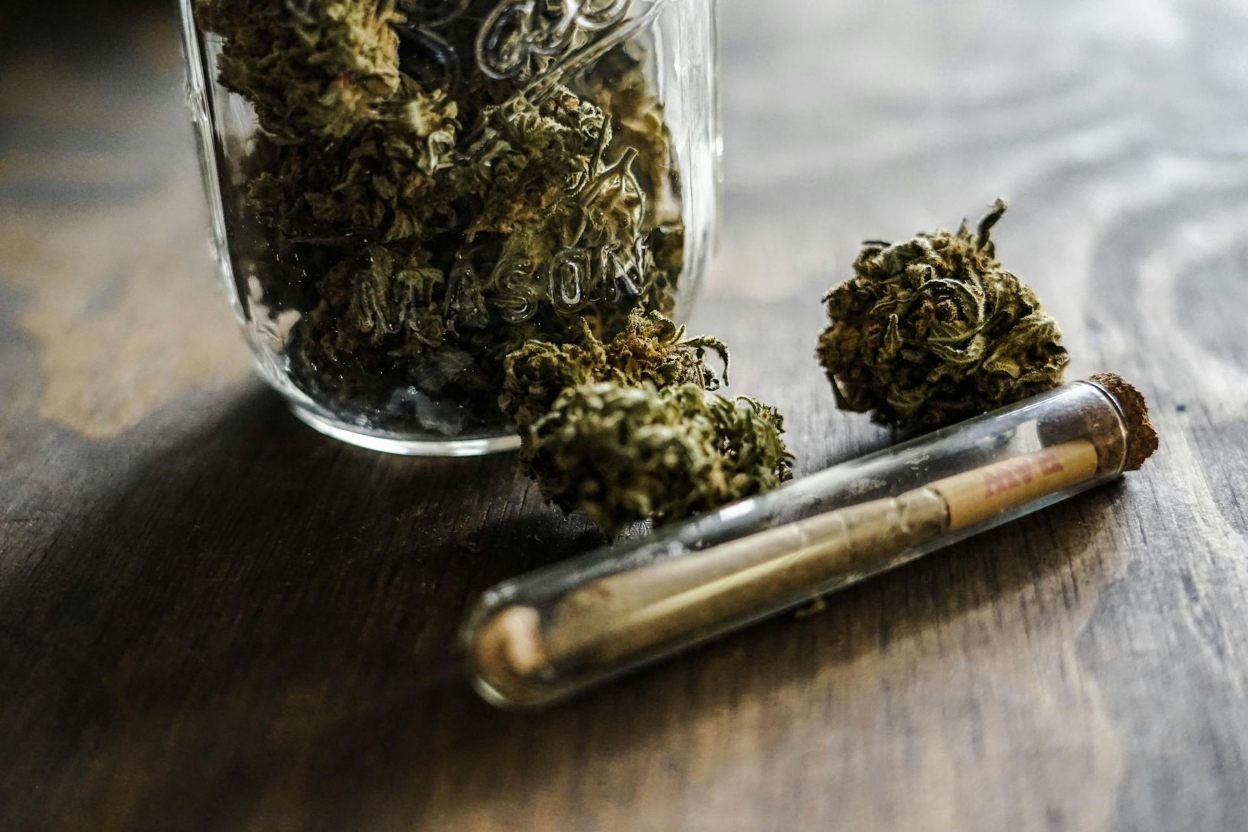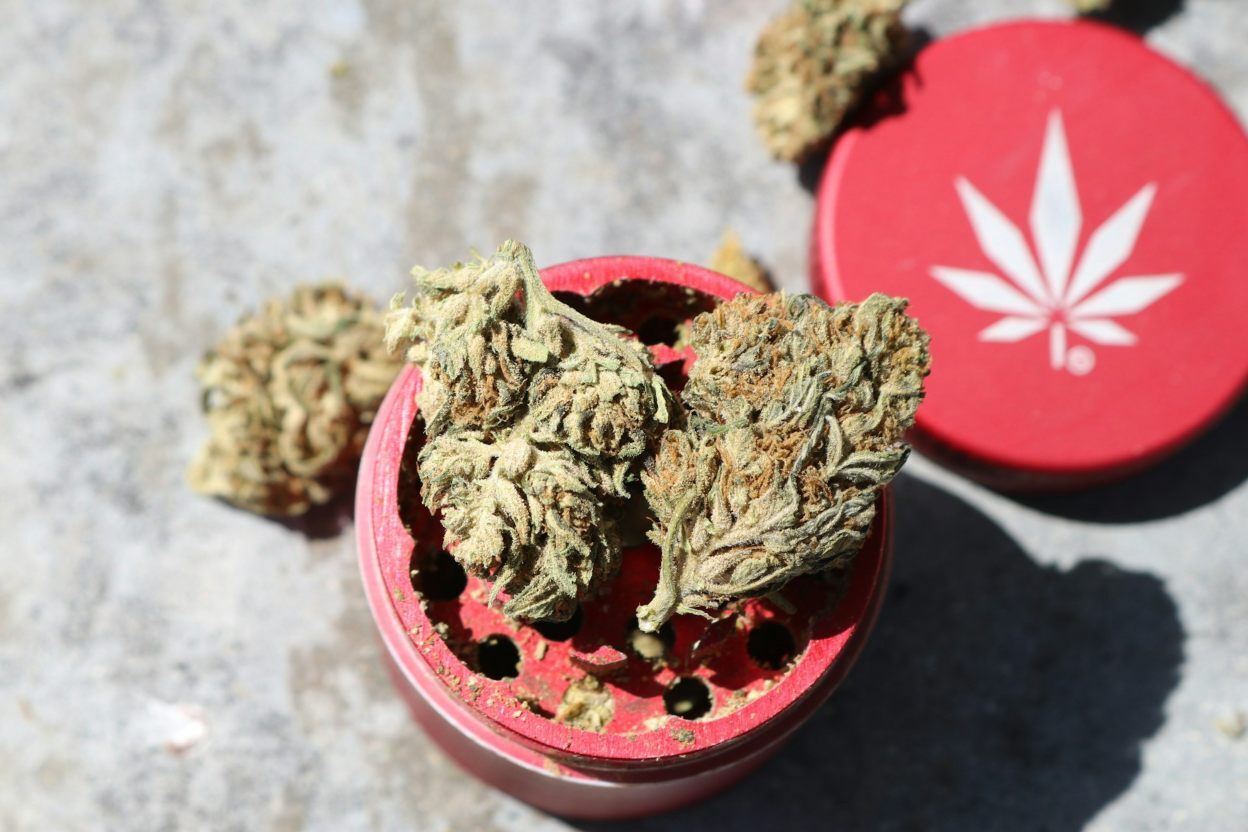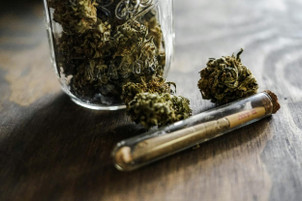- There is a significant difference between the effects caused by consuming THC bud and CBD bud.
- CBD flower has therapeutic benefits without the psychoactive effects and it comes from federally legal hemp.
- THC flower, on the other hand, does provide psychoactive effects.
- It’s important to understand a flower’s cannabinoid profile to predict its effects with relative accuracy.

The world of cannabis is very vast, and as such, it can be very confusing, especially for newcomers. Most people think that consuming the flower automatically gets you in an altered state of mind, but that’s not necessarily the truth!
It is a common misconception that all cannabis flower is the same. Knowledge about different types of cannabis is essential when deciding whether and which variety to consume. CBD-dominant and THC-dominant varieties both have distinct characteristics, and in this article, we’ll try to demystify the difference between THC flower versus CBD flower.
What Is Cannabis Flower?
Before diving deep into the difference between THC buds and CBD buds, let’s cover the basics. Cannabis flower, or bud, is a smokable part of a female cannabis plant (in case you didn’t know, yes, plants have different genders as well!). What makes that part of the plant interesting is its content. First of all, cannabis flower is rich in cannabinoids - active substances such as THC and CBD. Additionally, it contains terpenes responsible for the flower’s aromatic characteristics.
There are various ways to consume cannabis, no matter whether it’s a THC flower or a CBD flower. Even though smoking the flower is traditionally the most popular method of ingestion, edibles are rapidly gaining popularity across the board, especially within the older population. Furthermore, vaping products have also seen a popularity surge in recent years.
THC Flower: The Usual Suspect
THC flower is taken from the cannabis plant bred to produce a higher concentration of tetrahydrocannabinol (THC). That particular cannabinoid is responsible for all the psychoactive effects that most people associate with all cannabis plants. It provides a sense of euphoria and is responsible for the altered perception of external sensory inputs and time. In addition to that, it also stimulates the appetite and offers relaxation to the consumer.
Psychoactive effects are the main line of division in the CBD flower vs THC flower showdown, but how do they occur? In its raw form, THC bud contains tetrahydrocannabinolic acid (known as THCA), which, because of its chemical instability, converts into THC when heated. This process is known as decarboxylation.
Unlike THC, THCA is not psychoactive. Recent research shows that THCA in its unchanged form may have neuroprotective and anti-inflammatory qualities. If the flower is consumed without heating, for example, juicing the fresh cannabis buds or digesting THCA edibles, a consumer can enjoy the non-psychoactive benefits of THC flower.
Most individuals enjoy the psychoactive effects of THC, which is why it’s crucial to stick to a golden rule: start low, go slow — especially if your tolerance is low or you don’t have much experience with THC.
CBD Flower: An Alternative
If all cannabis products produced intoxicating effects, the whole CBD bud vs THC bud dilemma wouldn’t be needed. However, CBD flower is precisely the option you should aim for if you want to get the benefits of cannabis without the psychoactive component.
CBD buds come from cannabis plants (hemp, more specifically) that are bred to produce high levels of Cannabidiol (CBD) and negligently low levels of THC. Hemp, legally speaking, is cannabis with less than 0.3% by dry weight. To put it simply, hemp flower and CBD flower are synonyms. Hemp is federally legal for sale in the United States due to the 2018 Farm Bill, and it is also commonly used for making cannabis accessories such as hemp wraps.
As mentioned earlier, the main difference between THC flower and CBD flower is that the latter doesn’t produce intoxicating effects, making it perfect for beginners and those who would like to avoid the psychoactive effects that cannabis may produce. CBD brings a myriad of potential benefits. Research shows that it is a useful tool in battling stress and it can help with discomfort and inflammation. CBD has also shown to be beneficial for those with sleeping problems.
CBD Flower vs THC Flower: Head To Head
What is the best option for you? CBD bud or THC bud? The answer to that question is: it depends. As usual in the world of cannabis, choosing the right type of bud or strain is almost entirely dependent on what you expect to get out of the experience. Let’s break it down:
- Psychoactivity: THC is psychoactive, while CBD isn’t.
- Cannabinoids: CBD flower contains high amounts of CBD while keeping THC concentration very low. THC bud has a significant amount of THC, with CBD varying from strain to strain.
- Effects: CBD offers relaxation and calm without the psychoactive experience, while THC is intoxicating with a sense of euphoria and altered perception.
- Legal status: CBD flower, unlike THC flower, is federally legal in the United States. Laws regarding THC buds vary from state to state, so it’s important to get familiar with local legislation to avoid potential problems.
Be aware that even CBD buds contain traces of THC, which might show up on a drug test. Both CBD bud and THC bud may have a variety of cannabinoids and different terpenes, which can offer different experiences. We recommend always starting with lower doses and increasing once you’re comfortable and know how you react. You may also want to consult your healthcare specialist before taking any cannabis products.

So, Which is Better?
It’s not necessarily a matter of which is better, but which might be better for you. The most important thing is to consume carefully and choose the right cannabis product according to your needs. Whether you’re going for a THC flower or a CBD flower, you need to understand the ways they differ and what effects they might provide. And, of course, don’t forget to have fun!

